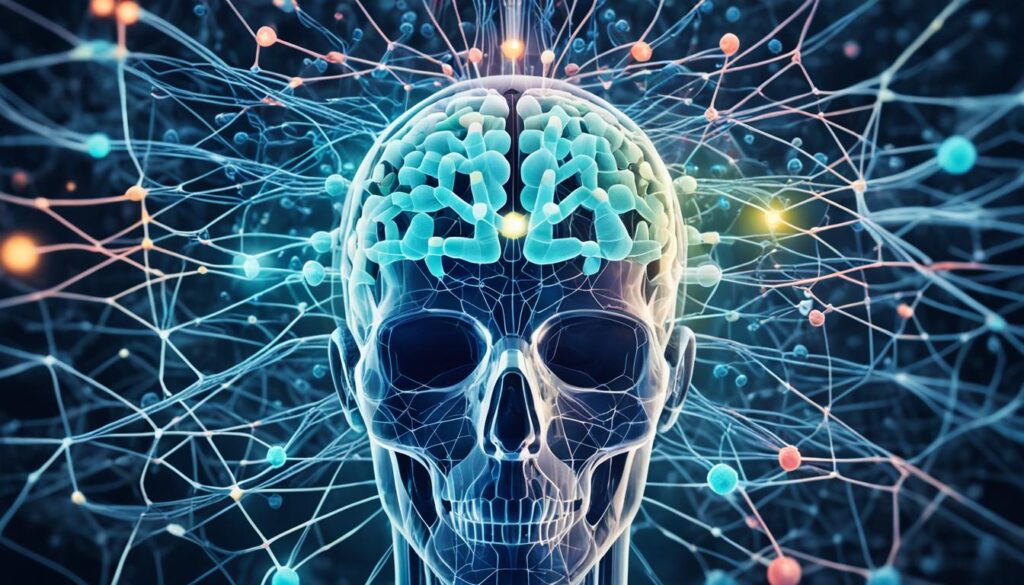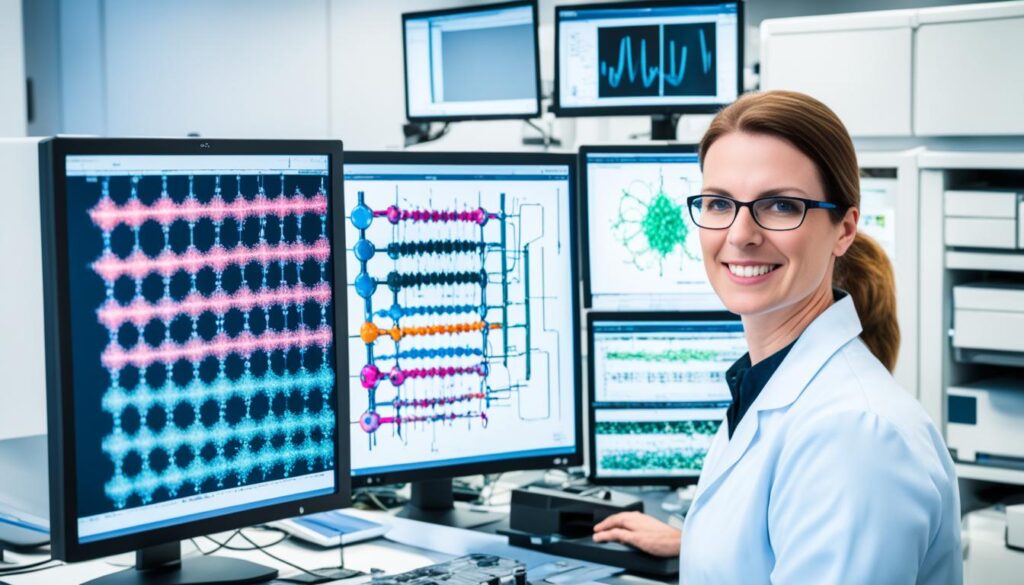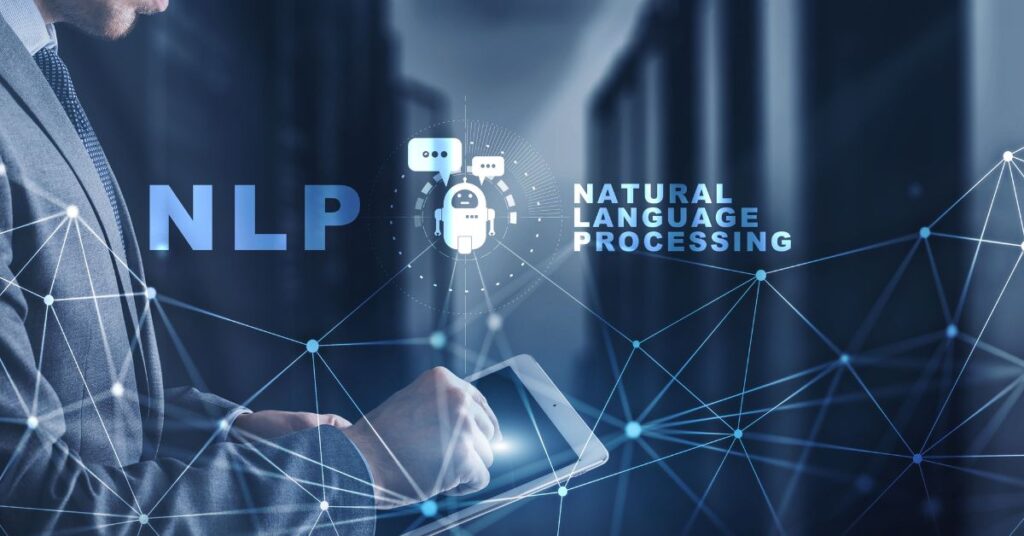Artificial intelligence (AI) has emerged as a powerful tool in personalized medicine, revolutionizing the way healthcare is delivered. By harnessing the potential of AI and machine learning, healthcare providers can now analyze vast amounts of data and develop personalized treatment plans tailored to individual patients. This groundbreaking technology offers the promise of improved diagnostics, more effective treatments, and better patient outcomes.
With AI-driven personalized treatment, healthcare professionals can leverage predictive analytics to make informed clinical decisions. By analyzing patient data, including genetic information, medical history, and lifestyle factors, AI algorithms can identify patterns and detect early signs of diseases, allowing for earlier intervention and more targeted treatments.

Moreover, AI in personalized medicine goes beyond diagnosis and treatment. It also plays a vital role in drug discovery and development. By analyzing vast datasets and employing computational methods, AI algorithms can identify potential drug candidates and targets, accelerating the drug discovery process and enabling the development of personalized treatments. This opens up a world of possibilities for precision medicine, where therapies are tailored to each individual’s unique characteristics.
As AI continues to advance and evolve, so too will the field of personalized medicine. From AI-driven clinical decision-making to enhanced diagnostic accuracy and personalized treatments, the integration of AI in healthcare holds immense promise for transforming the future of medicine. Embrace the power of AI and unlock your health potential.
The Significance of Cancer-Specific Biomarkers in Personalized Medicine
Biomarkers play a crucial role in determining the most effective treatment strategies for cancer patients. These biomarkers provide valuable insights into the molecular characteristics of tumors and help healthcare professionals personalize treatment plans. In personalized medicine, the goal is to tailor treatments to individual patients based on their unique genetic makeup, tumor characteristics, and disease progression.
While there are some biomarkers available that help understand cancer mechanisms, the lack of biomarkers for systemic treatments presents a challenge in personalized medicine. Each patient’s cancer is unique, and a one-size-fits-all approach may not be effective in all cases. This is where the discovery of cancer-specific biomarkers becomes critical.
AI and machine learning offer the potential to identify comprehensive cancer-specific biomarkers by analyzing complex data and detecting intricate patterns. These technologies can process vast amounts of genomic, proteomic, and clinical data to uncover associations between specific biomarkers and treatment responses. By integrating AI-driven biomarkers, healthcare professionals can gain a more accurate and comprehensive view of a patient’s cancer profile.
AI-driven biomarkers go beyond single quantifiable traits and provide a more holistic understanding of a patient’s cancer. They can consider multiple biomarkers simultaneously and assess their interplay, enabling personalized treatment plans that target specific molecular pathways or genetic mutations. By identifying the most relevant biomarkers, healthcare professionals can select targeted therapies that have a higher likelihood of success.
Moreover, AI-driven biomarkers have the potential to advance biomarker discovery methods. Traditional methods for identifying biomarkers involve time-consuming and expensive laboratory experiments. AI can help streamline this process by analyzing large datasets and detecting patterns that may go unnoticed by human researchers. This can expedite the identification and validation of biomarkers, leading to faster advancements in personalized medicine.
Overall, the significance of cancer-specific biomarkers in personalized medicine cannot be overstated. They provide valuable information that can guide treatment decisions and improve patient outcomes. Through AI-driven biomarker discovery methods, healthcare professionals can unlock new insights and develop targeted therapies that offer a higher chance of success. As AI continues to advance, we can expect even more precise and effective personalized treatments in the future.
The Growing Role of AI and Machine Learning in Cancer Research
AI and machine learning are playing an increasingly significant role in cancer research, offering exciting possibilities for improving diagnostic accuracy, predicting diseases, and developing personalized treatment plans. By analyzing vast amounts of complex data, AI algorithms can uncover patterns that may have previously gone unnoticed, revolutionizing our understanding of cancer and its treatment.

In cancer diagnosis, AI-powered algorithms can process data from various sources, including patient records and diagnostic images, to enhance the accuracy and speed of identifying cancerous cells or tumors. By automating the analysis process, AI algorithms can provide healthcare professionals with comprehensive data analysis, enabling more informed decision-making and personalized treatment strategies.
Furthermore, AI algorithms can predict diseases and assess risk factors by identifying patterns in large datasets. Through sophisticated pattern recognition techniques, AI can improve our understanding of the factors contributing to the development and progression of cancer. This knowledge empowers healthcare providers to identify high-risk individuals, recommend preventive measures, and develop personalized screening plans.
One of the most promising applications of AI in cancer research is the discovery of biomarkers. Biomarkers, measurable indicators of disease or physiological processes, play a crucial role in determining optimal treatment strategies. AI-powered biomarker discovery methods can comprehensively analyze complex data, uncovering subtle patterns that traditional methods may miss. This comprehensive data analysis facilitates the identification of biomarkers that can provide more accurate and personalized insights into an individual’s cancer profile, enabling targeted therapies and improved treatment outcomes.
Additionally, AI-driven drug discovery is transforming the development of new cancer treatments. By analyzing vast amounts of biological and chemical data, AI algorithms can identify potential drug candidates and predict their efficacy and safety. This accelerated drug discovery process allows researchers to explore a wider range of treatment options and develop personalized treatments that precisely target the unique characteristics of each patient’s cancer.
Overall, the integration of AI and machine learning in cancer research holds great promise for advancing personalized medicine. Through data analysis, pattern recognition, and AI-powered biomarker discovery, researchers and healthcare professionals can unlock new insights into cancer, improving diagnosis, treatment, and outcomes for patients. As AI continues to evolve and our understanding of cancer deepens, the future of cancer research and precision medicine looks brighter than ever before.
AI-Powered Diagnosis and Disease Prediction in Precision Medicine
AI algorithms are transforming the landscape of precision medicine by enhancing the accuracy and speed of disease diagnosis. Through the analysis of vast amounts of medical data, these algorithms can identify subtle patterns that may elude human observation, resulting in more accurate diagnoses. One significant example of AI’s potential in improving diagnostic accuracy is its ability to outperform human dermatologists in diagnosing skin cancer.
Furthermore, AI algorithms have the power to predict diseases and assess risk factors by analyzing large datasets that contain patient information and medical records. By leveraging AI algorithms in disease prediction, healthcare professionals can identify potential diseases and intervene at the earliest stages, enabling more timely and effective interventions in personalized medicine.
In addition to diagnosis and disease prediction, AI-powered monitoring systems have revolutionized real-time monitoring in healthcare. Through wearable devices and health monitoring platforms, these systems continuously analyze data to detect early signs of abnormalities. This real-time monitoring allows for early intervention, preventing the progression of diseases and providing valuable insights for healthcare professionals.
The integration of AI algorithms in personalized medicine offers the potential for more accurate diagnoses, efficient disease prediction, and real-time monitoring. The use of wearable devices and health monitoring platforms combined with AI technology enhances patient care and enables healthcare professionals to deliver precise and timely interventions. With AI as a powerful tool, personalized medicine is advancing towards a future where diseases can be predicted and addressed proactively.
AI-Driven Drug Discovery and Development in Precision Medicine
AI-driven drug discovery and development revolutionize the identification and development of new drugs. By leveraging large datasets and utilizing computational methods, AI algorithms can more efficiently and effectively identify potential drug candidates and targets. This accelerates the drug discovery process, reduces time and resources required, and enables the development of more precise and effective treatments.
AI algorithms also optimize drug efficacy and safety by analyzing vast amounts of data and predicting treatment outcomes. By personalizing treatments based on individual characteristics and adapting therapies to patient responses, AI enables healthcare professionals to maximize treatment effectiveness while minimizing side effects.
With AI-driven drug discovery, the potential for more targeted and personalized treatments in precision medicine is within reach. By harnessing AI algorithms, healthcare providers can develop tailored drug therapies that address specific patient needs and characteristics.
AI algorithms analyze comprehensive data sets to identify drug targets and optimize the development of drug candidates. By predicting treatment outcomes and assessing drug safety, these algorithms revolutionize the drug development process and ensure personalized treatment plans.
The integration of AI algorithms in drug discovery and development not only optimizes treatment effectiveness but also streamlines the entire process. By reducing the time and resources required for drug development, AI-driven solutions pave the way for quicker access to novel and effective treatments.
Conclusion
The integration of AI in personalized medicine holds immense promise for revolutionizing healthcare. With AI-driven solutions, healthcare professionals can enhance diagnostic accuracy, predict diseases, accelerate drug discovery, and personalize treatments. By leveraging the power of AI and machine learning, tailored and effective treatments can be provided, improving patient outcomes and revolutionizing the future of healthcare.
Continuous advancements in AI technology, combined with collaborative efforts among researchers, healthcare providers, and technology experts, are driving personalized medicine to unlock new possibilities. The integration of AI is transforming the healthcare landscape, offering a comprehensive approach to patient care and improving the health and well-being of individuals worldwide.
By harnessing the potential of AI in personalized medicine, healthcare professionals can leverage vast datasets, analyze complex patterns, and develop AI-driven algorithms. This enables them to make more informed decisions, predict diseases in advance, and develop personalized treatment plans that are tailored to each individual’s unique characteristics. The integration of AI is revolutionizing the healthcare industry, paving the way for more precise and effective healthcare interventions.
The future of healthcare is being shaped by the continuous advancements in AI technology. Through collaborative efforts and the application of AI-driven solutions, personalized medicine is poised to unlock new avenues for improving patient outcomes. With the potential to improve diagnostic accuracy, predict diseases, accelerate drug discovery, and personalize treatments, AI-driven personalized medicine offers a transformative approach to healthcare that has the power to improve the health and well-being of individuals around the world.
FAQ
How does AI contribute to personalized medicine?
AI and machine learning analyze vast amounts of data, identify patterns, and develop AI-driven algorithms to enhance personalized healthcare. From diagnosis and disease prediction to drug discovery and treatment personalization, AI revolutionizes healthcare by tailoring treatments and predictions to individual patients.
How can AI help in the discovery of cancer-specific biomarkers?
AI and machine learning have the potential to identify comprehensive biomarkers by analyzing complex data and detecting intricate patterns. By going beyond single quantifiable traits, AI-driven biomarkers provide a more accurate and comprehensive view of a patient’s cancer profile, leading to better treatment outcomes in personalized medicine.
In what ways does AI play a role in cancer research?
AI and machine learning analyze large amounts of complex data, identifying patterns that may have gone unnoticed by human observation. These technologies enhance the accuracy and speed of cancer diagnosis, predict diseases and assess risk factors, and accelerate the identification and development of new treatments, advancing personalized medicine towards more precise and effective interventions.
How does AI improve disease diagnosis and prediction in personalized medicine?
AI algorithms analyze vast amounts of medical data and identify subtle patterns that may elude human observation. By outperforming human dermatologists in diagnosing skin cancer, AI algorithms enhance diagnostic accuracy. Furthermore, AI algorithms can predict diseases and assess risk factors by analyzing large datasets, providing healthcare professionals with more precise and timely interventions.
In what ways does AI contribute to drug discovery and development?
AI leverages large datasets and computational methods to more efficiently and effectively identify potential drug candidates and targets. This accelerates the drug discovery process, reduces time and resources required, and enables the development of more precise and effective treatments. AI algorithms also optimize drug efficacy and safety by analyzing data and predicting treatment outcomes, offering the potential for more targeted and personalized treatments in precision medicine.

